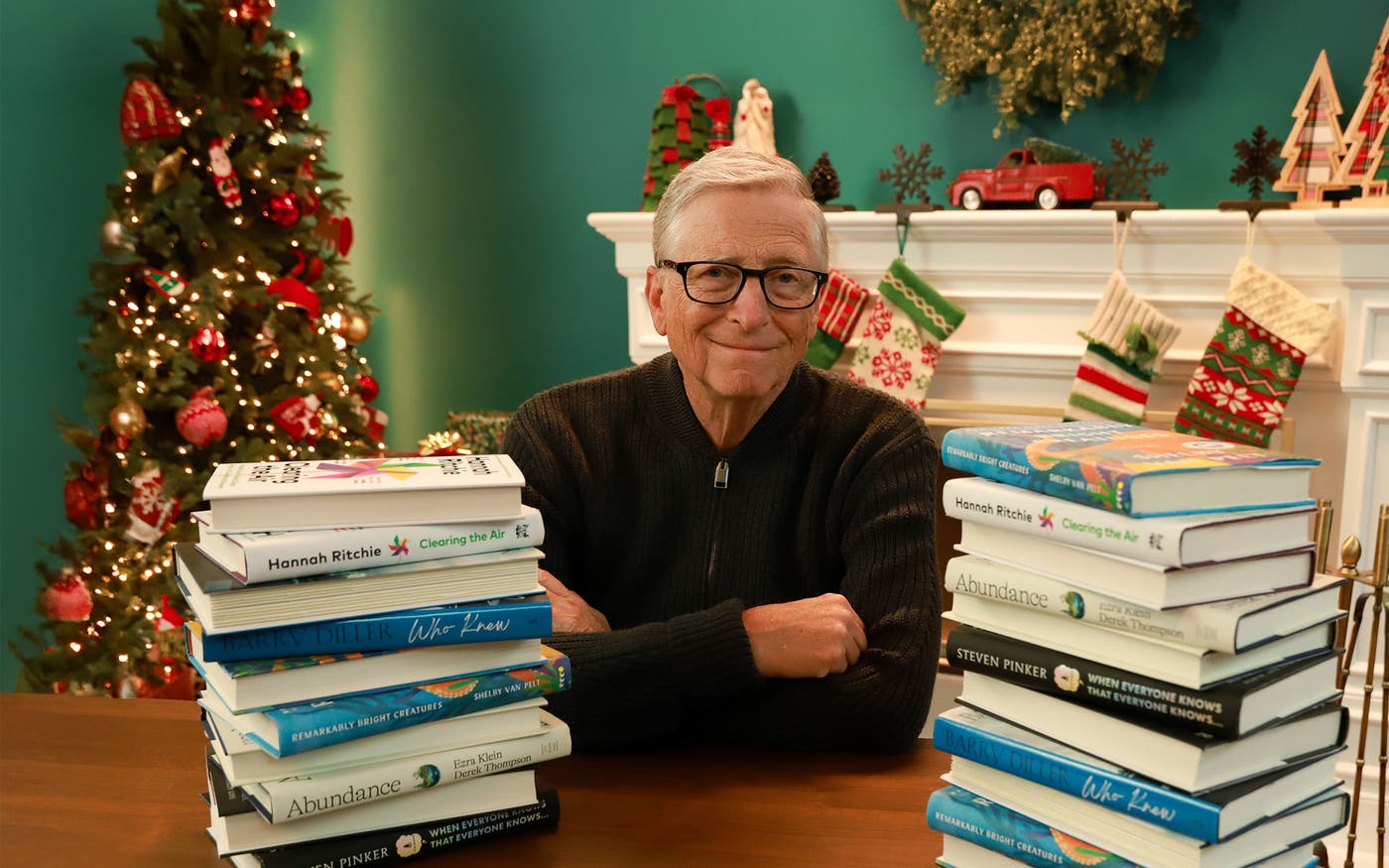
Seasons readings
Five books to read this winter
These were some of my favorite books from 2025.

The holidays are almost here. I always love taking advantage of this time of year to catch up on reading, and I know a lot of people feel the same way. There’s something about the quieter days around the holidays that makes it easier to sit down with a good book. So I’m sharing a few recent favorites.
Each of these books pulls back the curtain on how something important really works: how people find purpose later in life, how we should think about climate change, how creative industries evolve, how humans communicate, and how America lost its capacity to build big things—and how to get it back.
I hope you find something here that sparks your curiosity. And I hope your holiday season is filled with happy loved ones, good food, and great conversation.
Remarkably Bright Creatures by Shelby Van Pelt. I don't read fiction often, but when I do, I want to read about interesting characters who help me see the world in a new way. Remarkably Bright Creatures delivered on that front. I loved this terrific novel about Tova, a 70-year-old woman who works night shifts cleaning an aquarium and finds fulfillment caring for a clever octopus. Tova struggles to find meaning in her life, which is something a lot of people deal with as they get older. Van Pelt's story made me think about the challenge of filling the days after you stop working—and what communities can do to help older people find purpose.
Clearing the Air by Hannah Ritchie. I’ve followed Hannah’s work at Our World in Data for years, and her new book is one of the clearest explanations of the climate challenge I’ve read. She structures it around 50 big questions—like whether it’s too late to act, whether nuclear power is dangerous, and whether renewables really are affordable—and answers each one in concise, accessible language. She’s realistic about the risks but grounded in data that shows real progress: Solar and wind are growing at record speed, electric cars are getting cheaper, and innovation is accelerating across areas like steel, cement, and clean fuels. If you want a hopeful, fact-driven overview of where climate solutions stand, this is a great pick.
Who Knew by Barry Diller. I’ve known Barry for decades, but his memoir still surprised and taught me a lot. He’s one of the most influential figures in modern media. He invented the made-for-TV movie, helped create the TV miniseries, built Paramount into the #1 film studio, launched the Fox broadcast network, and later assembled an internet empire. He’s spent his life betting on ideas before they were obvious, and the industries he’s transformed show how much those bets can pay off.
When Everyone Knows That Everyone Knows by Steven Pinker. Few people explain the mysteries of human behavior better than Steven Pinker, and his latest book is a must-read for anyone who wants to learn more about how people communicate. When Everyone Knows That Everyone Knows shows how “common knowledge” lets people coordinate: When we know what others know, indirect signals become clear. Although the topic itself is pretty complicated, the book is readable and practical, and it made me see everyday social interactions in a new light.
Abundance by Ezra Klein and Derek Thompson. This book is a sharp look at why America seems to struggle to build things and what it will take to fix that. Klein and Thompson argue that progress depends not just on good ideas but on the systems that help ideas spread. Today, these systems often slow things down instead—from housing and infrastructure to clean energy and scientific breakthroughs. I recognized many of the bottlenecks they describe from my own work in global health and climate. Abundance doesn’t pretend to have all the answers, but it asks the right questions about how the U.S. can rebuild our capacity to get big things done.


